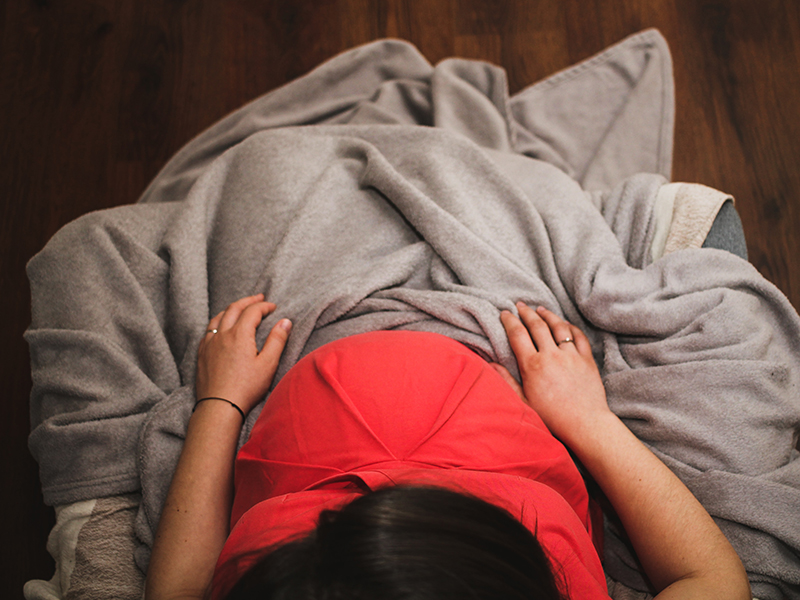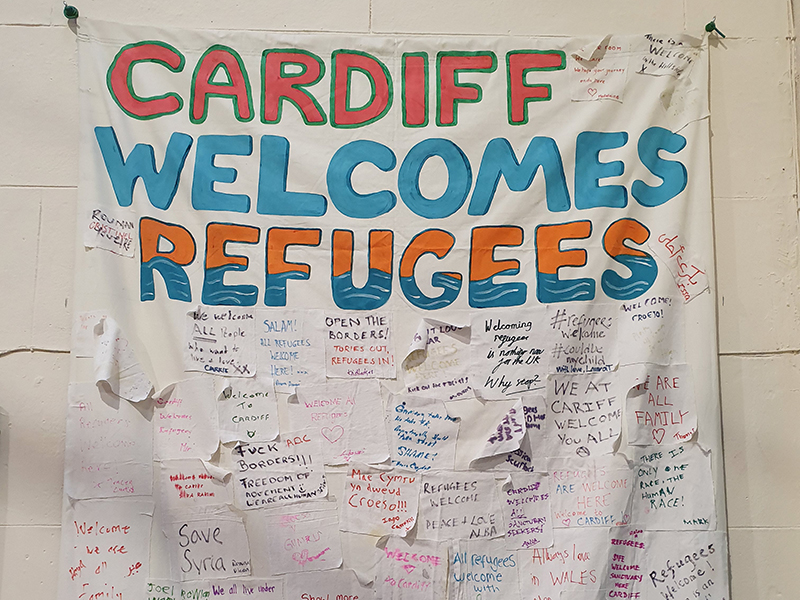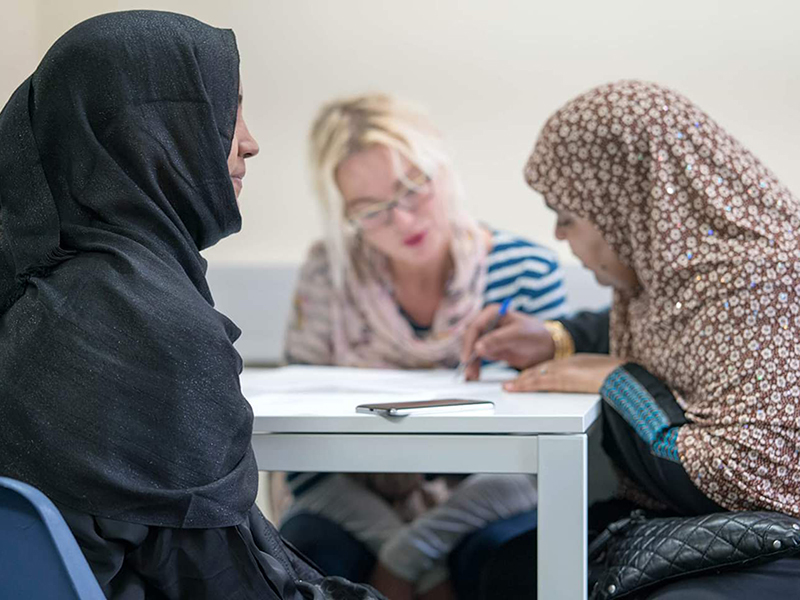How is Cardiff supporting pregnant asylum seekers and refugees to ensure they are engaging with essential maternity care?

Imagine you have fled your home country either by force or to escape persecution, violence, war or instability. Now imagine you are also a victim of rape, domestic abuse or female genital mutilation (FGM). You are facing cultural and financial barriers and, on top of all that, you are pregnant.
This is a reality for so many women seeking sanctuary in Cardiff.
These women are extremely vulnerable and many are also black and minority ethnicity (BME) so are more likely to experience complicated birth outcomes, according to a report by the Royal College of Obstetricians and Gynaecologists.
The report states, once they give birth, women may struggle as single parents in isolation and poverty. This is often a trigger for postnatal depression and further disengagement with healthcare services.
So, as a dispersal city and a City of Sanctuary, how is Cardiff tackling pregnancy care engagement among women seeking sanctuary?

Quality of life
A new plan aiming to tackle inequality and poverty among refugees and asylum seekers was published by the Welsh Government in January this year. It aims to improve the standard of accommodation and financial support they receive and provide more funding to the Welsh public services that support them.
On the back of this plan, the government launched a website in October called Sanctuary. Its purpose is to provide accessible, relevant information so those seeking sanctuary can find advice around the support available to them.
An asylum seeker in Wales receives £37.75 a week plus an extra £3 a week if they are pregnant. They are also eligible for a £300 lump sum from the Home Office but the application process is complicated and many miss out.
Jacci Peach is the women’s worker at Oasis Cardiff, a non-profit charity based in Splott that aims to help refugees and asylum seekers.
She says women cannot apply for the £300 grant until they have been dispersed and the limit for that is six weeks.
“If you give birth and you not dispersed until after six weeks then you’re no longer entitled to it. Oasis helps women appeal this because it is unfair and not their fault,” she continues.
“It’s really hard for them to access care because they don’t speak the language.”
Engagement with care
One of the biggest deterrents when it comes to engagement with care is the language barrier, says Jacci.
There are English classes available but creche provision for those who have other children is hard to find. Charities like Oasis work to provide this, she continues.

Wendy Ansell is the specialist asylum seeker midwife based at Cardiff Health Access Practice as part of the Elan Team. She says women seeking sanctuary struggle to access care when they are initially dispersed to Cardiff.
“It’s really hard for them to access care because they don’t speak the language. They don’t understand the system and have underlying issues like post-traumatic stress,” she explains.
The Elan Team work alongside third sector organisations to provide these women, who have complex maternity care needs with the relevant support.
“They come to me at all stages of pregnancy, some of them might be full-term and haven’t had any prenatal care at all,” she continues.
As many as one in five of all women have mental health problems during pregnancy or after birth, according to a report by the Royal College of Psychiatrists. For asylum seekers and refugees, feeling unsupported can only exacerbate these issues, potentially affecting birth outcomes.
Many are dispersed around the country several times throughout their pregnancy, leaving them isolated and their care disjointed.
The Home Office cannot move pregnant women between 34 weeks pregnant and six weeks after the baby is born because it can be unsafe. But, says Wendy, some of them do still get moved right up to 34 weeks.
“For the first week I was just crying, it’s very difficult in a new place, I had no one to help me.”
Coping with isolation
The Birth Partner Project (TBPP) helps asylum seekers and refugees across Cardiff, who do not have a local support network or the resources to pay for extra help during labour and after birth.
One woman from Mongolia, who would like to remain anonymous, gave birth to her first child while living in London, but was moved to Cardiff during the later stages of her second pregnancy. She received support from TBPP.
“I found out my partner couldn’t be at my birth in my later stages of pregnancy and I just panicked because I have a four-year-old and I have no friends, I have no family. I was thinking ‘What if it happens in the middle of the night, who is going to look after my son?’
“For the first week I was just crying, it’s very difficult in a new place, you don’t know anyone, I had no one to help me. It was a very shocking thing to happen,” she says with some frustration.
Despite the isolation and anxiety that came with the sudden move, she finds Cardiff to be much better than London because of the one to one support she received during her pregnancy.
“Cardiff organisations have a closer relationship with patients and are much friendlier than my experience in London. There I had people coming in and out, I didn’t know who my midwife was but in Cardiff, it felt much closer,” she explains.
According to Jacky Knowles from TBPP, “Overall, pregnant women seeking asylum in Cardiff appear to be in a better position than women in many places in England. In particular with the specialist midwives involved with their care.”
The Welsh Government’s aim to become a Nation of Sanctuary is a work-in-progress and more can be done to improve the accessibility of support available.
Until then, a difficult pregnancy remains a reality for many pregnant women seeking sanctuary in Cardiff.
